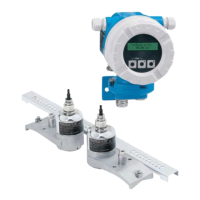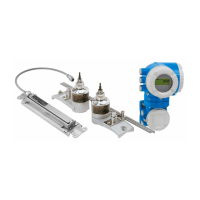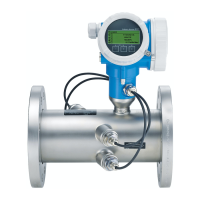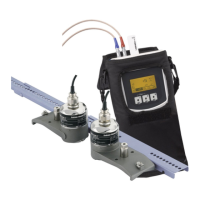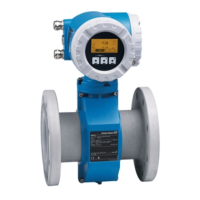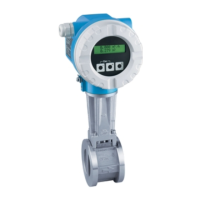Proline Prosonic Flow W 400 HART Commissioning
Endress+Hauser 91
Navigation
"Setup" menu → Installation status
‣
Installation status
Installation status (2958)
→ 91
Signal strength (2914)
→ 91
Signal to noise ratio (2917)
→ 91
Sound velocity (2915)
→ 91
Sound velocity deviation (2986)
→ 91
Parameter overview with brief description
Parameter Description User interface
Installation status Shows the device status on installation based on the measured
values displayed.
Displays the device status after installation according to the
displayed measured values.
• Good option: No further optimization required
• Acceptable option: Measuring performance ok, optimize if
possible. You should always aim for the status Good option.
• Bad option: Optimization is required. Poor and unstable
measuring performance.
Check the following points to optimize the sensor
installation:
• Number of traverses, change if necessary (e.g. from 2
traverses to 1 traverse)
• Sensor distance
• Alignment of sensors
• Sufficient coupling medium available (coupling pad or
coupling gel)
• Check the measuring point parameters in the
configuration
• Good
• Acceptable
• Bad
Signal strength Displays the current signal strength (0 to 100 dB).
Assessment of the signal strength:
• < 10 dB: bad
• > 90 dB: very good
Signed floating-point number
Signal to noise ratio Displays the current signal to noise ratio (0 to 100 dB).
Assessment of the signal-to-noise ratio:
• < 20 dB: bad
• > 50 dB: very good
Signed floating-point number
Sound velocity Displays the sound velocity that is currently measured.
Deviation of the measured sound velocity from the expected
sound velocity:
• < 1 %: good
• 1 to 2 %: acceptable
• > 2 %: bad
Signed floating-point number
Sound velocity deviation Shows the deviation of the installation sound velocity from the
measured sound velocity.
Signed floating-point number

